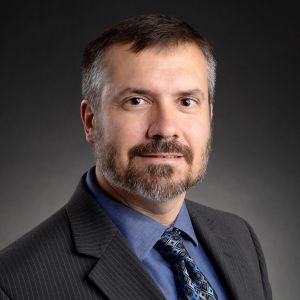St. Jude Family of Websites
Explore our cutting edge research, world-class patient care, career opportunities and more.
St. Jude Children's Research Hospital Home

- Fundraising
St. Jude Family of Websites
Explore our cutting edge research, world-class patient care, career opportunities and more.
St. Jude Children's Research Hospital Home

- Fundraising
St. Jude Global and Indonesian stakeholders unite for first-ever national childhood cancer policy planning

Through St. Jude Global multiple stakeholders came together under one umbrella to work on childhood cancer policy planning in Indonesia.
Uniting different stakeholders under the same umbrella to address a need in childhood cancer research and treatment worldwide is a key component of the work of St. Jude Global. Through the Global Initiative for Childhood Cancer [launched in 2018 by St. Jude, the World Health Organization (WHO) and other global stakeholders], many people are united to increase the global survival rate for childhood cancer. The initiative brings together stakeholders across sectors toward the shared goal of improving the health and well-being of children with cancer using the CureAll framework.
The CureAll framework outlines the key components needed to establish, scale up and sustain a well-functioning national childhood cancer program. With support and tools from the St. Jude Global Asia Pacific Regional and Health Systems Programs and using the CureAll pillars as a foundation, government, clinician leaders and advocates in Indonesia have come together to work toward establishing the country’s first Pediatric National Cancer Control Plan (PNCCP). The Indonesian Pediatric Hematology/Oncology Working Group is focused on drafting a plan to roll out this year.
Leveraging long-standing relationships in Indonesia and beyond
St. Jude has worked with the pediatric cancer community in Indonesia for more than 15 years, a strong foundation that benefits current and future collaborations. Five years ago, Indonesian stakeholders worked with St. Jude Global to plan a national workshop to align perspectives across involved government ministries, hospitals and organizations towards improving pediatric cancer care.
Using the St. Jude Country Collaboration for Childhood Cancer Control, or C5, tool, a small group of experts mapped needs and opportunities specific to Indonesia. While the COVID-19 pandemic initially halted progress, the momentum of multiple efforts converged in 2024. These ideas gained new strength through a meeting between representatives from the Indonesian Ministry of Health, the Indonesian Pediatric Hematology/Oncology community, St. Jude, and another long-time collaborator, the Princess Maxima Center for Pediatric Oncology (Netherlands). During that pivotal meeting, the Indonesian Minister of Health asked St. Jude Global to help set up the nation’s first childhood cancer control plan.
The Ministry of Health then established the first Indonesian Ministry of Health-led team on childhood cancer control planning, which has since worked on an extensive C5 plan. Over the last six months, the team joined a global cohort of 21 other country teams in the St. Jude Global-led training series: National Cancer Control Planning integrating Children, Adolescents & Young Adults (NCCP iCAYA).
“It’s tremendous to see the local Indonesian teams shine,” said Catherine Lam, MD, MPH, Director of the St. Jude Global Asia Pacific Regional Program and Health Systems Unit and Director of the WHO Collaborating Centre for Childhood Cancer. “The Indonesia NCCP iCAYA team has worked hard with us to appraise and map systems-level teams’ needs, using C5, and exchange policy challenges in real-time alongside real-world strategies aligned with CureAll, within the country and with the global NCCP iCAYA cohort.”
Planning brings together diverse stakeholders
Since March, St. Jude Global has continued weekly meetings with members of an extended Indonesian Ministry-led NCCP iCAYA team alongside WHO and partners. In many meetings, the team works together on C5. This C5 roll-out has engaged a diverse team of clinicians, foundations, government representatives and other stakeholders to identify and prioritize actions needed to strengthen their country’s health systems to improve outcomes for children with cancer.
“In 2017, we used the St. Jude C5 tool to start mapping our needs across the country. Starting in 2018 and 2019, we had a collaboration to build up the national guidelines for retinoblastoma, but unfortunately, the pandemic disrupted our work’s expansion,” said Eddy Supriyadi, MD, PhD, head of Pediatric Hematology Oncology at Sardjito Hospital in Yogyakarta, Indonesia, and member of the St. Jude Global Alliance Asia Pacific Regional Advisory Committee.
“We started again in 2022 and 2023, and once the MOU (Memorandum of Understanding) with my hospital and St. Jude was signed, we began working on the national cancer control plan for pediatric cancers. We are focused on completing it this year,” Supriyadi added. “The support from the St. Jude team is really encouraging us to realize our great work and dreams for children with cancer. We appreciate Dr. Lam and St. Jude.”
The effort has mapped 224 hospitals and more than 50 foundations so far. In other meetings, the team is deepening NCCP iCAYA discussions and exploring ways children and adolescents can be integrated into national policies, using examples from the extensive SJCARES Policies tool suite and applying CureAll.
In the summer of 2024, St. Jude experts joined an imPACT cancer control review requested by the Indonesian Ministry of Health and coordinated by the International Atomic Energy Agency (IAEA). Over two weeks, teams visited more than 10 hospitals across six provinces in Indonesia to assess capacity and opportunities to improve cancer management in the country. The assessment visit was closed out in a first national workshop dedicated to childhood cancer hosted by the Ministry of Health. This event highlighted the importance of addressing childhood cancer and connected the visit findings, C5 and NCCP iCAYA insights with those from diverse stakeholders to ensure progress.
A bright future for Indonesian cancer care
“It is encouraging to see the resilience, dedication and commitment of the Indonesian Pediatric Oncology Community over the years to not only develop the first-ever Pediatric National Cancer Control Plan, but also to bring that plan into reality,” noted Andini Handayani, Program Manager for the St. Jude Global Asia Pacific Regional Program.
“Good intention is the first step in the right direction, but it is even more important to implement things safely for children in Indonesia,” added Handayani, who Lam notes has been instrumental in coordinating these efforts, serving as a mission-critical translator — both linguistically and in translating ideas into action.
Uniting many groups of stakeholders under one umbrella, one mission — to improve pediatric cancer care — has already made a tremendous impact in Indonesia, with more progress yet to come. This is particularly true for the nation’s children.
“It was great to see so many partners come together, eager to share,” Lam said. “The Indonesia team has proposed CureAll as their core strategy, tailored for their current situation where they expect more than 12,000 children with cancer each year but only registering just over 2,000, with many not completing treatment and many more relapsing. There is an unmissable opportunity to save many more children. That’s what the new plan will address.”






